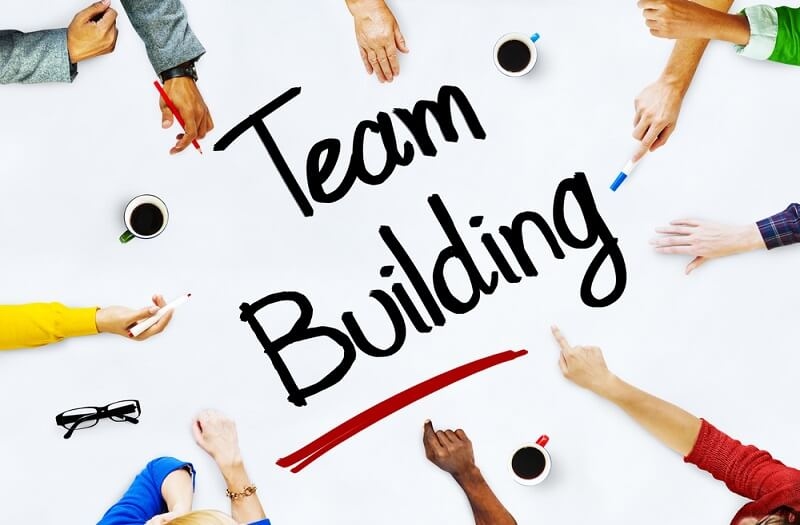Effective Team Building Strategies for Preschool Teachers

If you’ve ever worked in a preschool, you know the magic (and chaos) that fills the room daily. Between finger paints, snack breaks, and those adorable “why?” questions, preschool teachers juggle a lot. But here’s the catch, none of it runs smoothly without a solid team. That’s where effective team building strategies come in.
In early childhood education, teamwork isn’t optional, it’s survival. Whether it’s planning lessons, handling a classroom meltdown, or coordinating with parents, every teacher depends on another. The stronger the bond, the better the classroom experience for everyone involved, especially the kids.
So, let’s talk about practical team building strategies that go beyond those awkward “trust fall” games. We’re talking real methods that foster collaboration, creativity, and support among preschool staff.
Building Bonds Beyond Lesson Plans
It’s tempting to think teamwork just happens because you work together every day. But, in reality, collaboration needs to be nurtured, especially among educators who come from different backgrounds and teaching styles. That’s where thoughtful preschool teacher team building comes in.
A great way to start? Shared storytelling sessions. Invite each teacher to share a memorable classroom moment or a funny incident. These stories spark empathy and laughter, both powerful connectors. When teachers laugh together, they begin to trust each other more, and that trust shows up in the classroom dynamic.
You can also introduce team building exercises for preschool teachers that feel natural rather than forced. For example:
- “Lesson Remix”: Have pairs swap lesson plans and adapt them creatively.
- “The Problem Jar”: Write down common classroom challenges (like nap-time chaos) and brainstorm solutions together.
- “Mini Workshops”: Let teachers showcase one small skill they’re proud of, like calming techniques or DIY craft hacks.
These short yet frequent engagements promote comradeship and career advancement.
Fun and Educational DIY Ideas for Kids with Shrinky Dink Art
Don’t Miss: Fun and Educational DIY Ideas for Kids with Shrinky Dink Art
Collaboration Isn’t a Meeting, It’s a Mindset
Collaboration is given too little attention as a meeting or a checklist. In preschool, collaborative work is more profound- it is based on open communication, mutual respect and common interests as in a small orchestra where every instrument counts.
Preschool teachers become so occupied with their own rooms that they lose track of the fact that they are part of a bigger community. Open communication is promoted, which changes that. Try:
- Peer Observations: Instead of formal evaluations, make it friendly. Watching each other teach (and sharing feedback over coffee later) helps teachers learn new tricks and appreciate each other’s strengths.
- Shared Reflection Boards: Set up a common wall space or digital board where teachers can post challenges or wins. It’s amazing how a simple “I tried this and it worked!” can spark collaboration.
These tactics do not involve the addition of meetings; they develop true interest and rapport between employees.
Preschool Staff Development Activities That Don’t Feel Like Work

The process of professional development can be formal, lengthy and boring. Nevertheless, the proper development of preschool staff can be enjoyable and significant a combination of learning and connection.
For example:
- Creative Workshops: Invite local artists, musicians, or even storytellers to hold short sessions. It refreshes the team’s creativity and gives them new classroom ideas.
- Role Reversal Days: Let teachers switch roles for a short period—maybe the art teacher manages the reading circle or the assistant leads a science activity. It’s not just fun; it builds empathy and flexibility.
- Mindfulness Breaks: A 15-minute guided meditation or short walk after staff meetings can recharge energy levels and encourage self-care.
These practices help teachers remember that development is not just a process of acquiring new practices, but it is also a process of building health and relationships.
The Power of Play (Yes, for Adults Too)
Preschool teachers are playful in nature, but they seldom play together. Team-building activities that are fun re-light the fire, and a happy team brings that fire into the classroom.
Try adding a few playful rituals to your week:
- A quick “Classroom Karaoke” moment before school starts
- A five-minute puzzle challenge during breaks
- A rotating “Compliment Box” where teachers leave kind notes for one another
Such short happy experiences go a long way in decreasing stress, uplifting spirits and reminding all why they like working with kids.
Must Read: Time Management for Students: Boost Grades & Cut Stress
Making Collaboration Stick: Turning Strategies into Habits
Of course, none of these team-building strategies matter if they’re treated like one-time events. The real magic happens when collaboration becomes a daily habit.
Here’s what helps:
- Regular Check-Ins: Even a short weekly chat can help teachers stay aligned and supported.
- Recognition Rituals: Celebrate small wins. Maybe someone handled a tough day like a champ, acknowledge it. Recognition builds motivation faster than any workshop ever could.
- Feedback Loops: Encourage open, kind feedback. When teachers feel safe expressing ideas or frustrations, it keeps resentment at bay and solutions flowing.
The easiest method of building a team is to go outside the school. Informal activities such as picnics, volunteer activities, and community garden projects create a common history that will lead to easier cooperation in the future.
Preschool Teacher Team Building Strategies: Beyond the Classroom Walls
Sometimes, the best way to strengthen a team is to step outside the school. Casual outings, like picnics, volunteer work, or even community garden projects—can do wonders for relationships. These experiences build shared memories that translate into smoother collaboration later.
You can also bring team building ideas for early childhood educators into seasonal traditions. Maybe a fall-themed decorating contest, a small holiday craft exchange, or a summer potluck where everyone brings a childhood favorite dish. The goal isn’t just fun, it’s familiarity and friendship.
It is important that consistency is applied even though some teachers may be reluctant at first. With time, even the most silent members will be open and feel noticed and appreciated. This is the real core of preschool team building, making everyone feel that he or she is part of something significant.
Discover More: Visual Attention Crafts to Improve Kids Focus Skills
Why It All Matters
When the preschool teachers work together, all is better: the quality of the curriculum, the classroom environment, the relations with parents. These plans make early-education settings successful.
Think of it like this: a preschool is a small ecosystem. Every teacher is a branch, every child a leaf, and teamwork, the sunlight that keeps it all growing. So whether it’s through team building ideas for early childhood educators or engaging preschool staff development activities, the goal remains the same: creating a community that nurtures, inspires, and laughs together.
Children also feel supported when their teachers are supported, and that is what education is all about.
This content was created by AI
